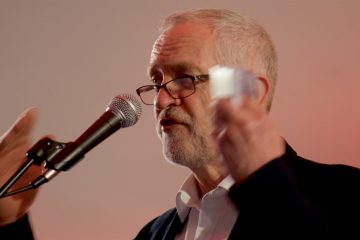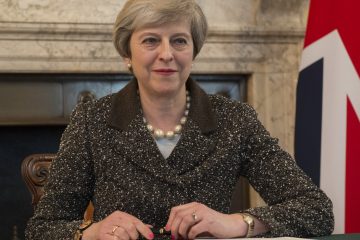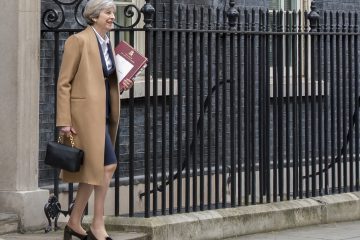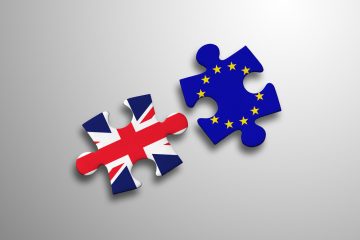
Another Labour Meltdown?
The polls in Scotland just before the last election showed a 21-point lead for SNP over Labour. The SNP went on to take all but one of Labour’s 41 Scottish seats. This week Theresa May called a general election in the wake of polls showing her Conservative party 21 points ahead of Labour. Could Labour now be headed for a Britain wide meltdown of the kind that they suffered in Scotland two years ago? Intriguingly, the distribution of the 2015 Labour share of the vote across the seats they are defending now is very similar to the distribution of their 2010 share of the vote in the Scottish seats that they were defending in 2015. In both sets the vast …

“Strong leadership needed for Brexit negotiations” Will this framing of the early election work for Theresa May?
When Prime Minister Theresa May announced her intention to call a snap election on June 8, she took a political gamble. Two polls over the Easter weekend put the Conservatives 21 points ahead of Labour. Mrs May will be hoping to translate this polling lead into a crushing electoral victory and a personal mandate that will free her from the constraints of working with her current slim majority of just 17. If she succeeds, she would be empowered politically to deal with factions within her own Conservative Party and the opposition. But how are voters likely to respond to this surprise move by the government? Party leaders are currently trying to frame the electorate’s views of it. Mrs May is …

Prime Minister Theresa May’s Early Election Call and the Fixed-term Parliaments Act
Theresa May has this morning announced that she intends to call a general election on June 8 in a bid to increase the size of her parliamentary majority and to reduce the ability of opposition parties to extract concessions from the government during Brexit negotiations. This raises the question of how she plans to achieve the election, given that the Fixed-term Parliaments Act (2011) removed the Prime Minister’s ability to trigger general elections. Under the Act, an early election can only be called under two conditions; (i) if the government is defeated in a vote of no confidence and parliament does not vote to express confidence in a government within two weeks, or (ii) if a two-thirds parliamentary majority endorses …

“National interest” – what do we mean?
“National Interest” has entered the lexicon as a phrase that implies a realist approach to International Relations. It carries an assumption that is it possible to define the national as a melding and cohering of all interests, including business, sectoral, regional, and religious, within a country. When politicians use the phrase National Interest they seek to convey a message about the importance of what they are saying. It is a term deployed to allude to grand ideas and strategies and to conjure up an image of national power, rather than to illuminate what is actually going on in the foreign policy process, or routine political activity. The phrase can and has been applied to the military, political and economic spheres—the …









